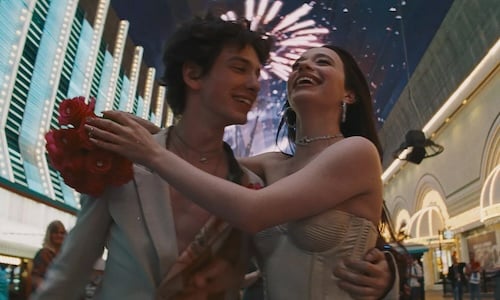
Few contemporary filmmakers mine the fallibilities of day-to-day life quite like Sean Baker. He first gained international attention with his scrappy, slice-of-Los-Angeles-street-life drama Tangerine (2015), notable as one of the first feature films to be shot on an iPhone (a technique later adopted by the likes of Steven Soderbergh for his 2018 thriller Unsane).
Baker then became something of an awards darling with his 2017 drama The Florida Project. Despite being garlanded with several Oscar nominations including Best Picture, the movie was distinguished by Baker's characteristic rawness and freewheeling energy, examining the lives of dispossessed children and their parents living in a motel adjoining Disneyland.
Released in 2022, Red Rocket was an altogether more contentious affair, the story of an ex-porn star looking for a comeback, and resorting to grooming to achieve his goals. It's the darkest of Baker's films to date but shares a genetic link with its predecessors in observing the bumpy overlap between comedy and tragedy, not to mention a love of richly profane language that speaks of thwarted dreams and punky, inveterate lifestyles.
Baker's latest movie Anora is now a frontrunner for the Oscars, having gained five nominations including Best Picture, and a slew of influential independent awards including Best Film at the Producer's and Director's Guild awards. Yet it's remarkable how Baker has refused to water down his gift for amusing discomfort or his ability to locate pathos in even the messiest of situations.
If your classic Oscar movie adheres to a linear emotional trajectory (think triumph to tragedy and back again), Baker's films revel in their sense of contradiction and this is what makes them a joy to watch. Multiple scenes in Anora scramble our emotions on a second-by-second basis so that what we're watching is less a scripted drama and more a study in verisimilitude, a kaleidoscopic reflection of reality.
In that sense, Baker's métier aligns with that of Britain's Mike Leigh or Ken Loach (albeit lacking the overt political overtones of the latter). These are all filmmakers who are capable of conjuring magic from the ordinary, comedy from tragedy, and the surreal from the real. One has recently seen it with Leigh's Hard Truths, which showcased an Oscar-contending performance from Marianne Jean-Baptiste as a woman railing against social pressure, although she was ultimately overlooked for the award.
Anora exemplifies all of these qualities and finds its focal point in the brilliant Mikey Madison. She plays the eponymous Anora, or Ani as she prefers, an exotic dancer who elopes with Ivan (Mark Eydelshteyn), the feckless and impossibly wealthy absentee son of a Russian oligarch. Ivan hires Ani for a week as a de-facto sex worker, a role he designates as his girlfriend, and later encourages her to marry him in Las Vegas.
Ani, who speaks Russian, bears the scars of a difficult family background that Baker wisely leaves unspoken. One imagines that a subconscious desire for partnership is what naively prompts her to make a disastrous decision. Having married Ivan, she is then beset by his godfather and minders who insist that the marriage will be annulled. To that extent, Ivan's overbearing mother is flying across from Russia along with his father, and that's when things get really chaotic.
Anora's quixotic contradictions are best summed up in the pivotal home invasion scene when Ani is accosted by the Armenian godfather Toros (Karren Karagulian), bumbling henchman Garnick (Vache Tovmasyan) and the largely silent Igor (Yura Borisov). The last of these men will become the most significant in Ani's emotional awakening but the scene itself deserves contextual analysis.
On one level, the scene is akin to a horror film, a home invasion in which a vulnerable woman is abandoned by her new husband and left to fend for herself against three men. However, Baker brilliantly turns the uncomfortable set-up on its head by showing how Ani physically gets the upper hand on the three, inflicting multiple injuries and showcasing all the sweary tenacity she's built up from her years being leered over as a dancer.
What starts as threatening evolves into something genuinely funny involving bitten necks and broken noses, yet the tense reality of Ani's situation (she's tied up by Igor, something she never lets him forget) never quite escapes the scene. It's both amusing and unpleasant at the same time, an encapsulation of Baker's previous cinematic experiments observing itinerant wastrels, headstrong children and low-life miscreants.
Madison's performance is what sells it. She's fully committed to the part, to the extent that she prepared by learning to pole dance and observing sex workers in the Brighton Beach area of Brooklyn where the film is set. Yet Madison's performance isn't all about surface-level pugnaciousness, and nor is Baker merely interested in sensationalist set-pieces.
Instead, as the second half of the film unravels and the group, led by Ani, sets out to find the cowardly Ivan, the real journey plays out amid the subtlety of Madison's reactions. Admittedly this can be hard to locate when she's often forced to shout and browbeat Ivan's friends as to his whereabouts, as in the sweet shop scene in which full-bore verbal intimidation is matched by Igor smashing the place up with a baseball bat.
However, Madison's facial expressions as Ani reflect a painful, gnawing reality that the character is either too stubborn or obtuse to admit. The marriage was always a sham, a capitalist fling set in motion by irresponsible people who are shielded from consequences by their wealth and influence.
When Ani later attempts to stand up to Ivan's mother, stating that due to a lack of a prenup she will sue the family, the matriarch Galina (Darya Ekamasova) instead sneers that the family's wealth will obliterate all of Ani's attempts to fight them. This poignant sense of defeat steals up on the viewer as it does on Ani, brilliantly reflected by Baker's lingering close-ups on Madison's face.
Truthfully, the character says more when she's silent than she does when frequently raging against a system of exploitation and coercion. There's a moment late on after the tumultuous marriage has been finally annulled in Vegas when Baker lingers on Madison's face in the back of a car, and one can practically feel the emotional violation that the character has suffered.
Ani opens herself up to the kind of weakness that, as a dancer in a male-dominated environment, she has been trained to overcome. It's a marvellous performance, both broad and introspective, and in Baker's classic style, it feels real. For any film to reach through the screen and clasp the audience's emotions with absolute truthfulness is a profound achievement, especially in an era when artificial spectacle tends to rule the day.
That leads to the end game and another stealth achievement on the part of Baker and his actors. We realise that the aforementioned Igor, although introduced as a menacing, hooded character, has instead been observing Ani's plight from afar. It's Igor who requests that Ivan apologise to Ani once the divorce is ratified, and it's Igor who cuts to the quick when he understands the split between the Ani and Anora personas.
Igor recognises the need for projection, for Ani to protect herself in a high-risk environment, but he perceives that Anora is the real person behind it, the sympathetic, alienated soul who is implicitly calling out for a connection. This isn't delivered with cod exposition but entirely naturalistically with acute use of long takes and piercing close-ups that signal dawning awareness.
Baker's technical form beautifully matches the structure of the narrative to the extent that, at the end of the film, one doesn't so much feel like they've escaped reality but been plunged right into it. The characters are mercurial, difficult and complex, both sympathetic and unsympathetic. Even the ones we're invited to identify with have challenging facets.
The film's shattering final shot between Ani and Igor is a reminder that Ani has been so inured to male exploitation that the suggestion of sincere tenderness is anathema to her. There's no obvious narration to signal this, nor any obvious narrative contrivance. We've simply been led to this point and have been left to draw our own conclusions, the least we expect from any grown-up drama.
Madison's blend of street smarts and vulnerability recently secured her the BAFTA over rival Demi Moore, nominated for the body horror The Substance. This places Madison on a level playing field as the Academy Awards gear up, although the impressive Supporting Actor breakout Yura Borisov is expected to capitulate to A Real Pain BAFTA winner Kieran Culkin (already the recipient of a Golden Globe in the same category).
As for Baker, he faces stiff competition from the more grandiose fare like The Substance, Papal drama Conclave (which has enhanced its chances with a BAFTA Best Film win) and Brady Corbet's immigrant epic The Brutalist. However, Baker's earthy and grounded sense of reality has already won over the PGAs and DGAs, and the film's lack of gimmicks may well work to its advantage.
Awards talk aside, Baker's film, as with his previous efforts, resonates because it speaks to a complex emotional truth. We're all hurting but we often don't dare to admit it, and it's a wider system of circumstances that often keeps us silent. Films like Anora show us what happens when we raise our heads above the parapet and cry out for help.
Book your Awards Season tickets for Anora via the following link. Tickets are £5 (plus an online booking fee) and the film screens at Cineworld on February 23rd.

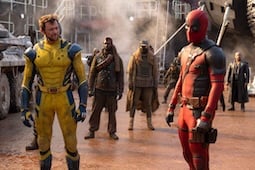



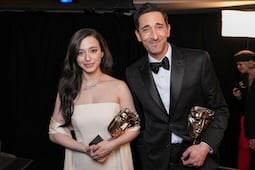


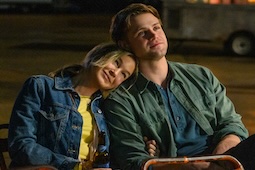
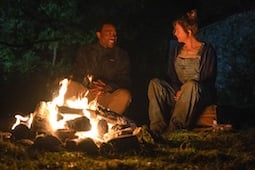



.jpg)
.png)






